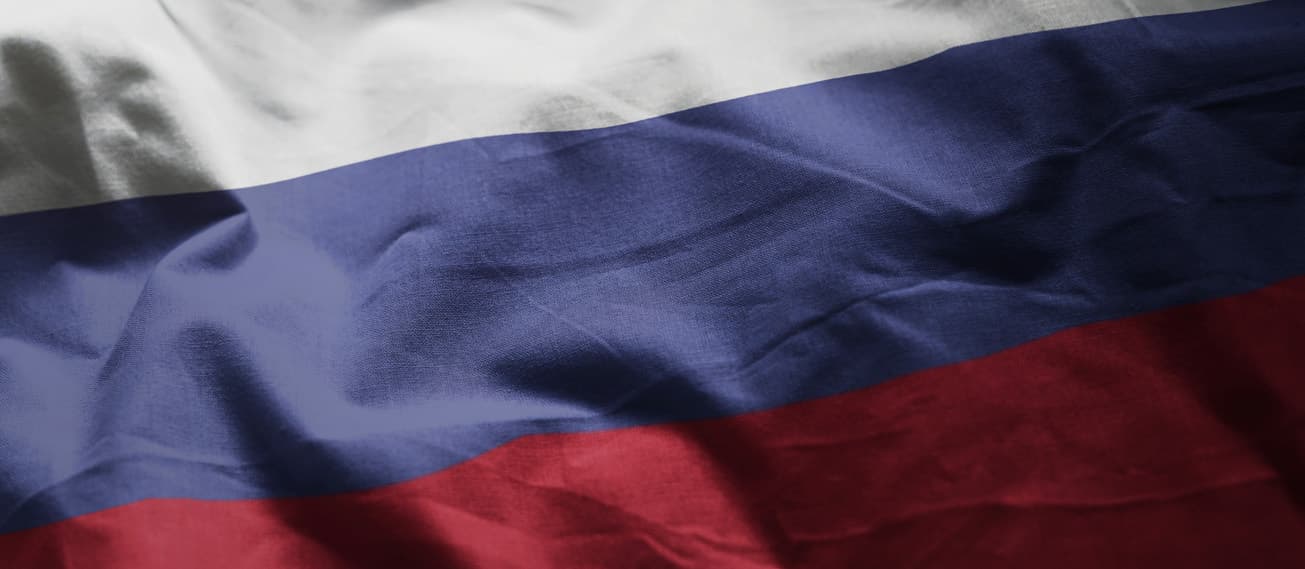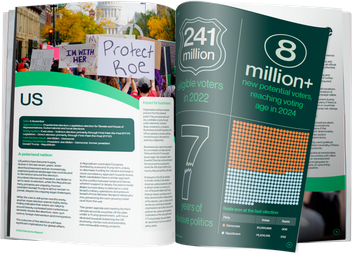What you need to know about the Russian election

Russia’s upcoming presidential election is scheduled for 15th-17th March. The vote will be a coronation exercise in favour of incumbent President Vladimir Putin, who will be confirmed in office for his fifth term as president of Russia. The election comes amid the ongoing conflict in Ukraine and a widespread crackdown by the Kremlin on internal opposition, ranging from political figures, including Alexei Navalny and Boris Nadezhdin, to independent media outlets and NGOs.
What does the election mean for Russia?
Russia’s presidential election takes place amid the backdrop of the ongoing conflict in Ukraine, which reached its second anniversary on 24th February, and approximately nine months after the abandoned Wagner mutiny of June 2023 and subsequent death of the group’s leader, Yevgeny Prigozhin, both of which underscored the extent to which the conflict has impacted the political landscape in Russia.
The death of Alexei Navalny at a penal colony in the Yamalо-Nenets region of Russia’s arctic north in February summarised the extent to which the Kremlin has intensified its purge of internal opposition. The crackdown by Russian authorities on public displays of opposition has significantly deterred large-scale protests since Putin launched the full-scale invasion of Ukraine. Protests against the war and mobilisation in Russia have seen hundreds detained at protests in Moscow and other cities across Russia.
Russia’s Central Electoral Commission has approved three candidates, whose policy positions are considered sufficiently non-threatening to Vladimir Putin:
- Leonid Slutsky of the Liberal Democratic Party of Russia
- Nikolai Kharitonov of the Communist Party of the Russian Federation
- Vladislav Davankov of the New People Party
None of the main opposition candidates standing in the election have advocated policies likely to mobilise opposition to the Kremlin. This is particularly true for the conflict in Ukraine; the most high-profile challenger to Putin, Boris Nadezhdin, was barred from standing by Russia’s Central Electoral Commission, allegedly on the basis of irregularities in his candidacy application. Nadezhdin spoke out publicly against the ‘’special military operation’’, criticising the Kremlin and Putin’s decision to launch the invasion of Ukraine. His disqualification came after another anti-war opposition candidate, Yekaterina Duntsova, was barred from standing. Putin has sought to remove the conflict as a point of contention during the election.
What does the election mean for geopolitics?
Russia’s election is significant as it is supposed to provide a veil of legitimacy for Putin’s policy towards the ongoing conflict in Ukraine. The conflict has had global implications, ranging from widespread sanctions imposed by the West and tensions between NATO and Russia reaching their highest point since the end of the Cold War. The alliance has welcomed two new members in Finland and Sweden as the conflict has provided additional motivation for Western security cooperation. Frontline fighting in Ukraine has become an attritional struggle and the Kremlin appears to be planning for a protracted conflict. Putin’s inevitable victory in the election will likely see the conflict stretch through the remainder of 2024. Ukraine’s next major US funding package has been delayed in Congress, and the conflict looks set to become a headline issue during the upcoming US presidential election.
Considerations for organisations with an interest in Russia:
- Closely follow developments in Russia, including further moves by the Kremlin to crack down on internal political opposition through expanding legislation.
- Remain vigilant to the HIGH political risks associated with operating in Russia. All personnel from countries which share hostile relations with Russia should remain aware of the significant risks associated with arbitrary detention. Multiple Western embassies advise against all travel to Russia owing to the deteriorating political and security risks.
- Bypass all political gatherings and signs of protest owing to the likelihood of arbitrary arrest by authorities. Leave the area immediately if unrest becomes apparent.
- Take note of the significantly expanded legislation designed to curtail political opposition, including the Foreign Agents law, which places severe restrictions on the capacity for NGOs and foreign businesses to operate in Russia.



